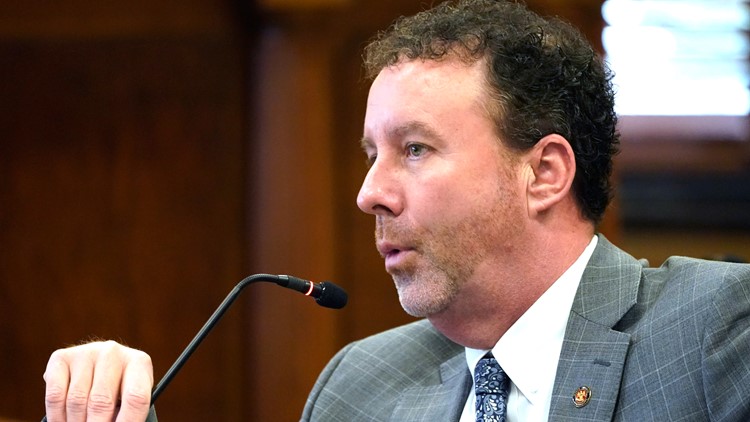JACKSON, Miss — A push to revive Mississippi's ballot initiative process is in peril as proposals are receiving weak support from Senate Republicans, and the House and Senate are pushing significantly different plans.
In a narrow 26-21 vote Thursday, the state Senate gave first approval to a bill that would allow Mississippi residents to put some policy proposals on statewide ballots. But several Senate Republicans, who dominate the chamber, voted against the proposal that already contains core differences from a competing measure passed by the House in January.
"I would call it on life support at this point," said Sen. David Parker, the Republican sponsor of the Senate proposal, when asked about reviving the initiative process.
A state Supreme Court ruling in 2021 invalidated the process for putting issues on statewide ballots. During 2022 and 2023, the House and Senate disagreed on details for a new initiative process. House Speaker Jason White has said restoring initiatives was a core concern of most voters he spoke to during the 2023 election.
The House passed a resolution in January to restore the ballot initiative process through a constitutional amendment, which would eventually require a two-thirds majority vote in the Senate. The Senate bill, which heads to the House, would not require a two-thirds vote because it wouldn't change the state constitution, but it contains provisions that could be a tough sell in the lower chamber.
Under the House proposal, an initiative would need more than 150,000 signatures in a state with about 1.9 million voters. In order to be approved, an initiative would need to receive at least 40% of the total votes cast.
The Senate version would require 67% of the total votes cast — a key point a contention between the chambers.
Parker and some other senators said the higher signature threshold was necessary to guard against out-of-state interests pouring money into the state to get issues on the ballot through the initiative process.
"We take the initiative process very seriously, and if something makes it on to the ballot, we expect there to be an outpouring of people with the desire to change our laws for that to pass," Parker said.
Both the House and Senate proposals would not allow initiatives to alter the state's abortion laws. Lawmakers have cited the Mississippi Legislature's role in defending a state law that laid the groundwork for the U.S. Supreme Court to upend abortion rights nationwide.
Following the Senate vote Thursday, Republican Rep. Fred Shanks, who helped author the House resolution, said restoring the initiative process would remain a legislative priority despite its narrow path to passage.
"The House stands on pushing the ballot initiative back to the people. It was the first issue we took up this session," Shanks said. "We are eager to work with (the Senate)."
Starting in the 1990s, Mississippi had a process for people to put proposed state constitutional amendments on the ballot. Mississippi dropped to four congressional districts after the 2000 census, but initiative language was never updated. That prompted the state Supreme Court to invalidate the process.



